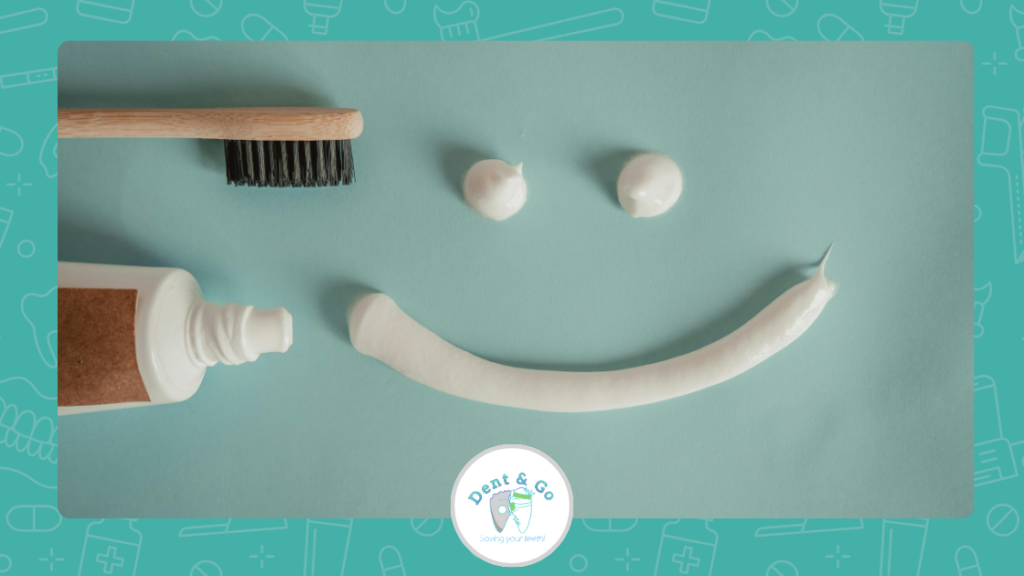If you’ve ever felt that sharp, uncomfortable zing when eating ice cream or sipping hot tea, you know how frustrating tooth sensitivity can be. And if you’ve ever found mint toothpaste too strong or even painful, you’re definitely not alone. Many people with sensitive teeth wonder if switching to a non-mint toothpaste is a better option—but is it really the right choice? Let’s break it down.
Why Are Your Teeth Sensitive in the First Place?
Tooth sensitivity happens when the protective enamel on your teeth wears down, exposing the dentine underneath. This layer contains tiny tubules that lead straight to the nerves inside your teeth—so when something hot, cold, or even sweet touches them, you feel it instantly. Ouch!
Common causes of sensitivity include:
- Brushing too hard or using a rough toothbrush
- Enamel erosion from acidic foods and drinks
- Receding gums exposing the roots of your teeth
- Teeth grinding (even if you don’t realise you do it!)
- Cavities or worn-down fillings
If any of these sound familiar, making small changes to your oral care routine—like choosing the right toothpaste—could make a big difference.
Is Mint Toothpaste Too Harsh?
Mint is the standard flavour for toothpaste, but it’s not for everyone. If you find it too strong, irritating, or just plain unpleasant, a non-mint option might be worth trying. Here’s why some people make the switch:
1. It’s Gentler on Sensitive Teeth and Gums
Mint toothpaste can feel intense—sometimes even painful—if you have sensitivity issues or gum irritation. A milder flavour can make brushing more comfortable.
2. It’s Great for People with Mint Allergies or Intolerances
Believe it or not, some people react badly to mint, experiencing irritation, nausea, or even headaches. Non-mint toothpaste offers a safe and effective alternative.
3. It’s Ideal for Kids and Those with Sensory Sensitivities
Children (and some adults) can find mint overpowering. Non-mint flavours like strawberry, coconut, or vanilla make brushing feel less like a chore and more like a pleasant habit.
4. It Encourages Better Brushing
If the strong taste of mint makes you want to cut your brushing time short, switching to a gentler flavour could help you brush for the full two minutes, leading to better oral health overall.
Does Non-Mint Toothpaste Still Protect Sensitive Teeth?
Yes! The flavour of toothpaste has nothing to do with how well it works. The key is making sure it contains the right ingredients. If you’re dealing with sensitive teeth, look for:
- Fluoride – Protects against cavities and strengthens enamel.
- Potassium Nitrate – Helps block pain signals from the nerves inside your teeth.
- Stannous Fluoride – Adds an extra layer of protection for sensitive teeth.
- Hydroxyapatite – A natural alternative to fluoride that helps rebuild enamel.
As long as your toothpaste has these, you’re getting the same benefits as a minty one—just without the intense flavour.
Are There Any Downsides to Non-Mint Toothpaste?
For some people, switching to a non-mint toothpaste is an easy decision. But there are a few things to keep in mind:
- It might not feel as “fresh” – Since we associate mint with cleanliness, it might take time to adjust.
- There are fewer options available – Mint dominates the toothpaste market, so you might have to look a little harder for the right non-mint product.
- Some have added sweeteners – Be sure to check the ingredients if you prefer a more natural toothpaste.
How to Find the Best Non-Mint Toothpaste for Sensitive Teeth
Thinking of making the switch? Here’s what to look for:
✔ Sensitive formula – Choose one with potassium nitrate or stannous fluoride for sensitivity relief.
✔ Fluoride for protection – Unless your dentist advises otherwise, fluoride is essential for preventing cavities.
✔ A flavour you like – Options like cinnamon, berry, or coconut can still give a refreshing feel.
✔ A trusted brand – Stick with brands known for good oral health products.
Should You Switch?
If mint toothpaste makes brushing uncomfortable or unpleasant, there’s no harm in trying a non-mint option. As long as it has the right ingredients to protect against sensitivity and cavities, your teeth will be just as clean and healthy.
At the end of the day, the best toothpaste is the one that makes you want to brush regularly. So if mint is a dealbreaker for you, go ahead and explore other flavours—it might be the change your smile needs!

